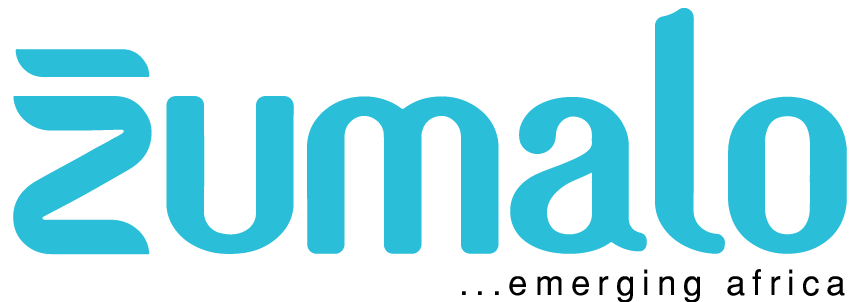Techies: Nigeria’s new export to the world
Is it just me, or does Nigeria have a hot web development scene? Seeing lots of good devs from Nigeria
— Wes Bos 🔥 (@wesbos) May 15, 2017
It’s no news that the Nigerian tech industry has had significant growth over the past few years.
At the forefront of this explosion are developers & designers hitting their keyboards and churning out amazing projects, organizing meet-ups, speaking at events, creating communities and making so much noise that international bodies are beginning to pay attention to the amazing pool of tech talent in Nigeria, even top companies are positioning themselves to tap from this pool in various ways.
But it was not always so, the Nigerian tech space used to be a quiet scene run mostly by banks, telecoms and oil companies. Most IT solutions and talent developed indigenously were seen as low standard – some actually were though; which led buyers of these solutions to purchase alternatives from countries like India.
Nigeria’s Tech Story
A lot of Nigerians would have naturally become computer literate and power users in the 1990s and early 2000s as the use of computers spread across offices and homes in Nigeria but the programmers were mostly made up of people who studied it in the University or those who went abroad to study software engineering.
Programming as a viable career option in Nigeria started circa 2005, when the average Nigerian could access the internet either by modems or through Internet Cyber Cafes (remember those), young people were browsing through sites like Google, Yahoo and naturally became curious about how these sites were built which led many to start toying with HTML, CSS and PHP. While some others took the option of going to India, England and other countries to study software engineering.
Computer focused schools like NIIT sprang up and introduced courses like Web Design (Dreamweaver) and Development (PHP), Graphic Design, JAVA, C++ and much more. IT businesses like Chams among others started and provided employment for these programmers.
It gets better
Many opportunities in the tech business opened up as the use of personal computers and mobile phones increased at a huge pace. Many businesses and Government bodies had no choice but to become digitally inclined, developing websites and management systems for internal operations. All these provided opportunities for developers and tech business to keep growing. Also, indigenous entrepreneurs who saw opportunities in the Nigeria market would start tech companies and guess who these tech companies employed to build these products? Developers, Designers & Writers.
Foreign businesses and investors began to see Nigeria – a country with a population of over 150 million as a market. Microsoft, Google and Mozilla stood out by creating programs like Student Ambassadorship to tap into the tech talent in Nigerian Universities. Others like YCombinator, 500startups and other Angel investment companies came to explore business opportunities by investing in local startups like Paystack, Konga, Hotels.ng etc
The world takes notice.
As the population of developers grew, their skills also did, most software solutions in the Nigerian market were being developed indigenously including ATM User Interfaces, Bank Mobile apps, websites etc. Designs got better, functionalities got more complex and they started to move from consumers of technology to become producers through contributing to open source projects, organizing meetups, and writing great tech articles to the amazement of foreign developers.
Chris Sevilleja, Founder of Scotch.io, a famous platform for publishing programming tutorials highlighted that the quality and quantity of article by Nigerian developers such as Chris Nwamba made him pay attention to the Nigerian tech scene.
“The quality across the board from Nigerian submissions is incredible. The top-notch article submissions are what really made me pay attention to what the community out there is doing. I think there are solid developers and leaders out there. More important than that, the interest from the beginners/people wanting to learn is overwhelming.” – Chris Sevilleja
The Nigeria tech scene began to make noise that pulled the attention of major foreign tech leaders.

Mark Zuckerberg( C.E.O of Facebook) paid a visit to Yaba, Lagos in 2016 and said that he was blown away by the talent and energy displayed by the Nigerian youth.
“I have really been blown away on this trip by the talents of young entrepreneurs and developers in this country, making a difference and making a change. It reminds me of when I wanted to start Facebook. I wasn’t starting a company at the time but wanted to build something to see if it would work. And that is what I see people here do, pushing through challenges, building things that you want to see in the world. You are not just going to change Nigeria and the whole of Africa but the whole world.” – Mark Zuckerberg
Great trip to Lagos. So invigorated by the energy & optimism of everyone here. Thx to our NG team for the warm hospitality #GoogleforNigeria pic.twitter.com/Ch5bYPaifl
— Sundar Pichai (@sundarpichai) July 28, 2017
Recently the C.E.O of Google, Sundar Pichai paid a visit to Nigeria to attend “Google for Nigeria”- An event organized by Google to showcase the various plans and actions in making the internet work better for Africa, as it stated:
“By 2034 Africa is expected to have the world’s largest working-age population of 1.1 billion—yet only. 3 to 4 million jobs are created annually. That means there’s an urgent need to create opportunities for the millions of people on the continent who are creative, smart and driven to succeed.”
To fill this huge gap between tech job demand and supply, many startups like Planet NEST, Switch.ng, Andela,(which was recently backed by Mark Zuckerberg through the Chan Zuckerberg Initiative), Nhub etc are focused on introducing the average Nigerian to technology, by teaching and training them to become world class tech talents.





Pingback: PyconNG2017: Growing the Community of Python Programmers - Zumalo.com
Pingback: How to Build a Career in Tech - Zumalo.com